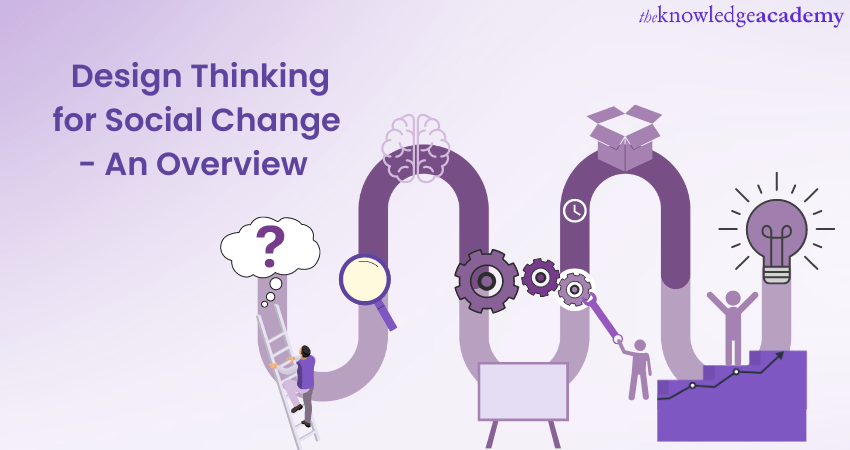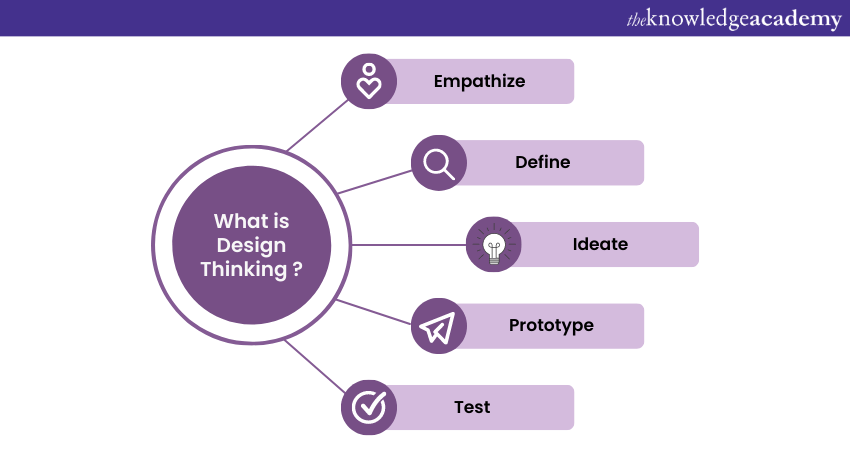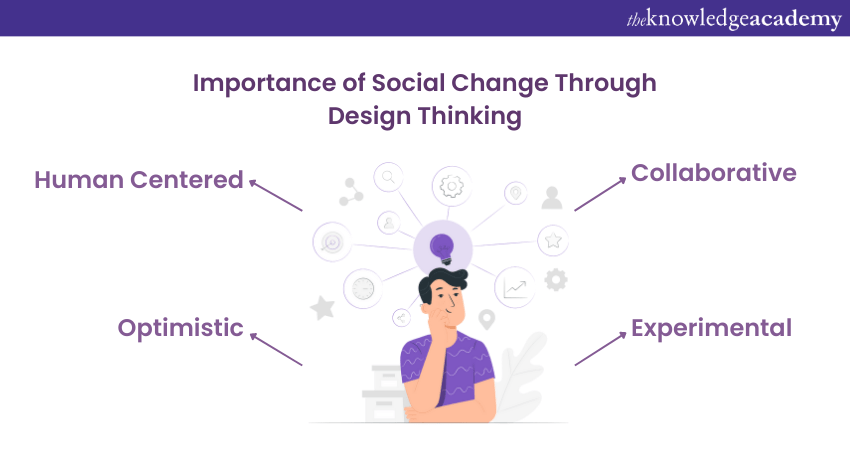We may not have the course you’re looking for. If you enquire or give us a call on +44 1344 203 999 and speak to our training experts, we may still be able to help with your training requirements.
Training Outcomes Within Your Budget!
We ensure quality, budget-alignment, and timely delivery by our expert instructors.

Design Thinking for Social Change has become increasingly popular in today's scenario. The approach helps address complex and systemic social problems more effectively and sustainably. Design Thinking is a process that involves empathy, ideation, prototyping, testing, and iteration. It begins by deeply understanding the people and communities affected by a particular social issue through research and empathy-building activities.
By focusing on the needs and experiences of the people impacted by a particular issue, Design Thinking for Social Change can lead to more human-centred and context-sensitive solutions. According to a study conducted by IBM, Design Thinking could deliver successful business outcomes such as a 75% increase in efficiencies along with a 300% increase in Return on Investment.
When applied to Social Change, Design Thinking can help address complex social challenges by focusing on the needs and experiences of individuals and communities. Design Thinking for Social change is an excellent process for gaining insights into human problems and developing innovative solutions.
Table of Contents
1) Design Thinking and social innovation
2) Importance of Social Change through Design Thinking
a) User-Centred Approach
b) Collaborative Approach
c) Creative Problem Solving
d) Iterative Approach
3) Conclusion
Design Thinking and social innovation
Design Thinking for social impact is a problem-solving approach centred around the user and their needs. Social innovation often involves collaboration between various sectors and stakeholders, including government, non-profit organisations, and the private sector. It can take many forms, such as new business models, policy initiatives, or social enterprises.
Design Thinking is a powerful tool for social innovation, as it allows for understanding the needs and perspectives of people affected by various social issues. By using Design Thinking, social innovators can create solutions tailored to the specific needs of communities and individuals, which are more likely to be adopted and effective.

Importance of Social Change through Design Thinking

Design Thinking involves empathy, experimentation, and iteration to develop innovative solutions to complex problems. Here are some reasons why Design Thinking is important for Social Change:
a) User-Centred Approach: Design Thinking puts the user at the centre of the design process, which helps ensure that the solutions developed are tailored to the needs of the people affected by social issues.
b) Collaborative Approach: Design Thinking is a collaborative process that involves a diverse group of stakeholders, including experts, users, and community members. This collaborative approach can lead to the development of more inclusive and equitable solutions that address the needs of all stakeholders.
c) Creative Problem Solving: Design Thinking encourages creativity and experimentation, leading to innovative solutions for complex social problems. This approach can help to break down silos and inspire new ways of thinking about social issues.
d) Iterative Approach: Design Thinking involves an iterative process of prototyping and testing solutions, which can help identify and address potential threats before they become bigger problems.
Conclusion
Design Thinking can develop effective solutions to pressing social issues by prioritising the needs and perspectives of those affected. Many believe it can solve some of the world's most pressing problems. This blog aims to provide a clear understanding of Design Thinking for Social Change, its importance, and reasons for choosing it.
Want to master the art of solving complex problems with an interactive approach? Join our Design Thinking Training course today.
Frequently Asked Questions
Upcoming Business Skills Resources Batches & Dates
Date
 Design Thinking Course
Design Thinking Course
Fri 21st Feb 2025
Fri 25th Apr 2025
Fri 20th Jun 2025
Fri 29th Aug 2025
Fri 31st Oct 2025
Fri 19th Dec 2025







 Top Rated Course
Top Rated Course



 If you wish to make any changes to your course, please
If you wish to make any changes to your course, please


